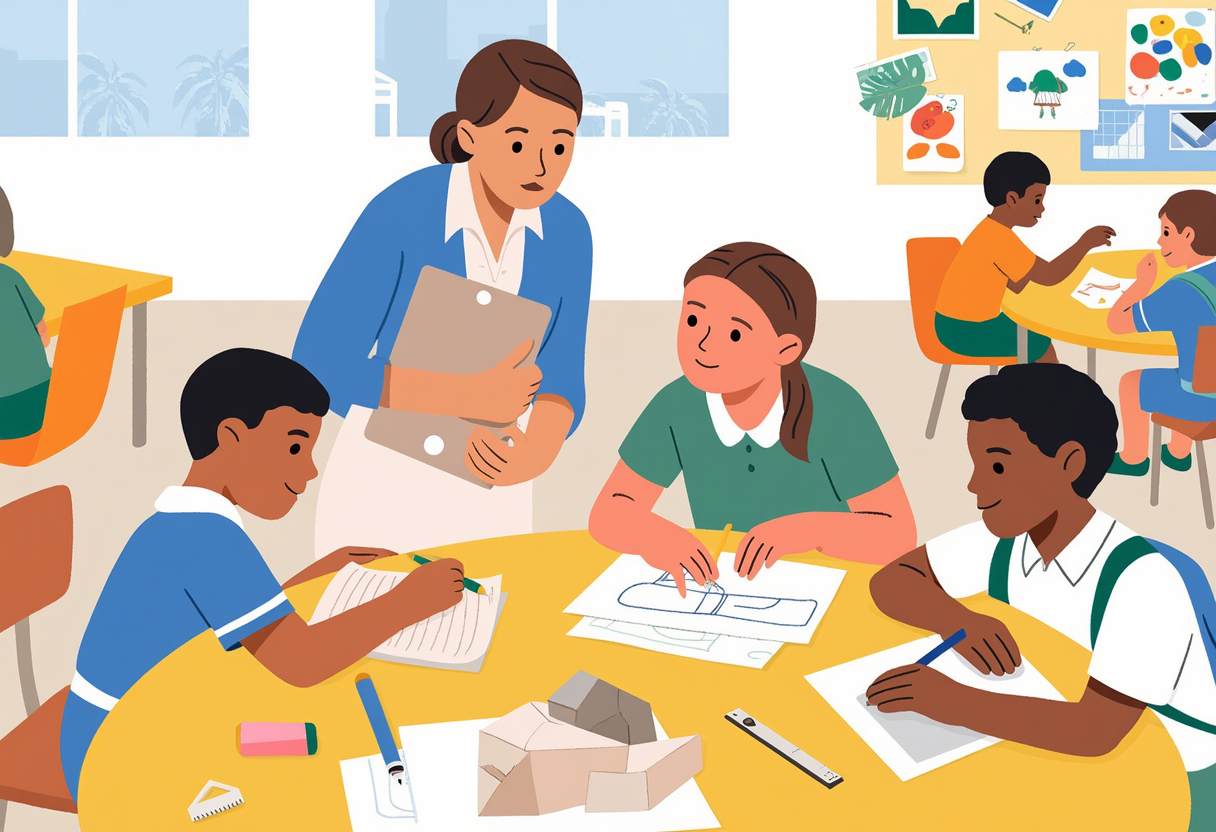The Future of Project-Based Education: Preparing Students for Real-World Challenges
Project-based education is revolutionizing traditional learning by actively engaging students in solving complex challenges. This approach not only enhances academic performance but also equips learners with vital skills for today’s workforce. Discover how project-based learning paves the way for innovative problem-solving and collaboration in diverse educational settings.
Understanding Project-Based Education
Project-based education (PBE) is an instructional approach where students learn by engaging in real-world projects. It transcends traditional teaching methods by fostering critical thinking and collaboration. With PBE, students work on meaningful tasks, allowing them to apply theoretical knowledge to practical situations. This form of education emphasizes the importance of developing skills that are crucial in today's job market, such as teamwork and creativity. Furthermore, project-based education aligns with modern educational standards and encourages a deeper understanding of subjects through experiential learning. By immersing students in active problem-solving, PBE not only boosts their academic performance but also prepares them for future challenges. Ultimately, this innovative approach transforms the learning environment into a dynamic space that nurtures curiosity and engagement.
The Importance of Real-World Applications
One of the most significant benefits of project-based education is its focus on real-world applications. Students are tasked with projects that mirror actual challenges in their communities or industries. Such relevance makes learning more tangible and engaging. Research indicates that when students see the practical implications of their studies, their motivation increases significantly. In project-based education, learners are not mere recipients of information; they are active participants in their educational journey. This hands-on approach deepens their understanding and fosters retention of knowledge. Moreover, project-based education encourages students to seek solutions collaboratively, refining their communication and interpersonal skills. This synergy between learning and application prepares them to navigate complex scenarios in their careers.
Enhancing Skills Through Collaboration
Collaboration is at the heart of project-based education. Students work in teams, which cultivates essential soft skills such as communication, conflict resolution, and effective leadership. Working in groups often challenges learners to find common ground, pushing them to listen actively and articulate their ideas clearly. Such interactions create a culture of peer learning, where students inspire and educate one another. Project-based education also exposes students to diverse perspectives, enhancing their adaptability and empathy. This collaborative environment not only enriches their academic experience but also mirrors the teamwork expected in many professional settings. Through project-based education, students are better equipped to tackle collaborative projects in their future careers.
Building Critical Thinking and Problem-Solving Skills
Critical thinking is a cornerstone of project-based education. As students approach complex projects, they are encouraged to analyze, evaluate, and create solutions. This process requires them to think critically about the information they have and how it applies to their project. In project-based education, students are often faced with open-ended questions that have no singular solution. This ambiguity cultivates an analytical mindset, pushing learners to examine various facets of a problem before arriving at a conclusion. Moreover, project-based education encourages students to reflect on their work and the processes they undertook to achieve it. This reflection is vital in developing metacognitive skills, where students learn to assess and adjust their approach to problem-solving in the future.
Customization and Differentiation in Learning
Project-based education allows for a high degree of customization and differentiation, catering to diverse learner needs and interests. Educators can tailor projects to align with students' passions and strengths, fostering a sense of ownership and engagement in their learning. Furthermore, this flexibility ensures that different learning styles are accommodated, allowing each student to thrive in their unique way. In project-based education, students can choose how they demonstrate their learning, whether through presentations, reports, or creative outputs. This variety not only enhances student engagement but also showcases their individuality and creativity, transforming assessments into a more holistic evaluation of their capabilities. Ultimately, project-based education empowers students by recognizing their unique contributions.
Conclusion: The Path Forward for Education
The evolution of education towards project-based education signals a significant shift in how knowledge is imparted. As the workforce demands evolve, educational methodologies must adapt to prepare students effectively. With its emphasis on practical application, collaboration, and critical thinking, project-based education equips learners with indispensable skills for their future. As more institutions adopt this approach, it is crucial to continue exploring innovative ways to implement and assess project-based education's impact on student learning. By fostering environments that prioritize engagement and real-world application, we are not just educating students; we are empowering them to become active contributors to society.
